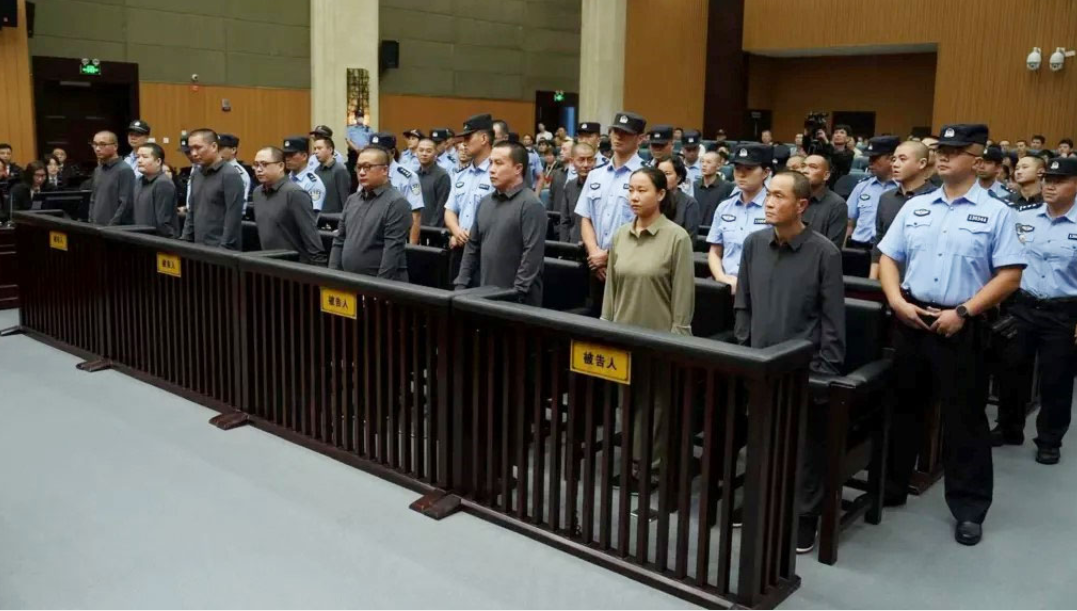Desk Report:
A Chinese court has sentenced 11 members of the notorious Ming family to death. The BBC reported, citing state broadcaster CCTV, that the convicted individuals operated a fraud and crime ring in the Myanmar town of Laukai.
A total of 39 people were sentenced in the verdict announced in the eastern Chinese city of Wenzhou on Monday (September 29). Of these, 11 were sentenced to death, five others were given two-year suspended death sentences, 11 were given life sentences and the rest were given sentences ranging from five to 24 years in prison. The court said that since 2015, the Ming family had been involved in various crimes including telecommunications fraud, illegal casinos, drug trafficking and prostitution. Evidence was found that they had earned 10 billion yuan (about 17,690 million taka) through fraud and gambling.
The BBC reported that the Ming family controlled the small town of Laukai, on the border with Myanmar’s Shan state. Casinos that once catered to Chinese gamblers gradually became a haven for fraud and money laundering. The United Nations has called the region the epicenter of a “scamdemic,” where more than a million foreigners were forced to work as fraudsters.
The most notorious was a compound called the “Crouching Tiger Villa.” At least 10,000 workers were held captive and tortured in this compound. Court documents say that if any of the workers tried to escape, members of the Ming family would shoot them so that they could not return to China.
In 2023, the Myanmar government carried out a crackdown and arrested many members of the Ming family and handed them over to China. It is believed that the head of the family, Ming Shuichang, committed suicide. Other members have come to China to confess and express remorse.
The city of Laukkai is now controlled by a rebel Myanmar group. This group is also believed to have links to China. Thousands of fraudsters detained there have already been handed over to Chinese police.
The Chinese court ruling against the Ming family sends a strong message to crack down on cross-border fraud rings. Under pressure from Beijing, Thailand took similar action this year. But the business has not completely shut down; much of it has now been moved to Cambodia. It is still active to some extent in Myanmar.




